Paul Verlaine
Il Pleure dans Mon Cœur

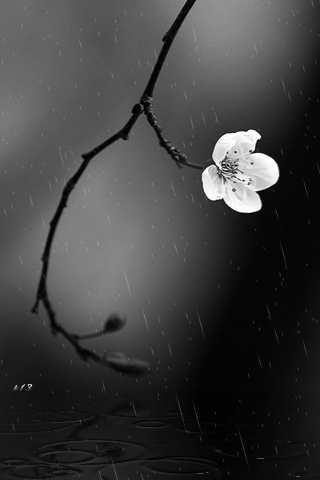

Il Pleure dans Mon Cœur

Paul Verlaine was born in Metzon March 30, 1844 and became one of the greatest and most popular of French poets. He was educated in Paris and began a post in the civil service. He started writing poetry at an early age and his first collection, Poemes saturniens was published in 1867

| Il Pleure dans mon Cœur | It is Crying Inside my Heart |
| . | |
Il pleure dans mon cœur
|
It rains /crying in my heart |
| Comme il pleut sur la ville. | As it rains on the town, |
| Quelle est cette langueur | What is this languor |
| Qui pénêtre mon cœur ? | That Penetrates my heart? |
| O bruit doux de la pluie | Oh sweet sound of the rain |
| Par terre et sur les toits ! | On the ground and the roofs! |
| Pour un coeur qui s’ennuie, | For a heart growing weary (bored/dull) |
| O le chant de la pluie ! | Oh the song of the rain! |
| Il pleure sans raison | It rains (It is crying) for no reason |
| Dans ce coeur qui s’écoeure. | Inside that heart that makes itself sick. |
| Quoi ! nulle trahison ? | What! No betrayal? |
| Ce deuil est sans raison. | That mourning is without reason. |
| C’est bien la pire peine | It is the greatest sorrow (the worst pain) |
| De ne savoir pourquoi, | Not knowing the reason why |
| Sans amour et sans haine, | Without love or hatred |
| Mon coeur a tant de peine. | My heart feels such pain! |


Daniel Mesguisch
Il Pleure dans mon Cœur
Il Pleure dans mon Cœur
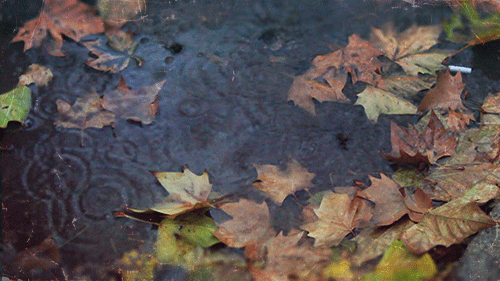
Ce poème de Verlaine est extrait du recueil Romances sans paroles (1874).
Ce recueil est composé de poèmes courts qui évoquent des paysages intérieurs, sentiments de mélancolie (rupture avec sa femme), croquis de voyage. Le mot "romance" accentue la musicalité des vers.

Analyse linéaire
1ère strophe :
Mélancolie de Verlaine en harmonie avec le paysage, dont la nature lui échappe (3 vers pour l'état d'âme, 1 vers pour le paysage).
2ème strophe : (3 vers pour le paysage, 1 vers pour l'état d'âme)
1ère strophe :
Mélancolie de Verlaine en harmonie avec le paysage, dont la nature lui échappe (3 vers pour l'état d'âme, 1 vers pour le paysage).
2ème strophe : (3 vers pour le paysage, 1 vers pour l'état d'âme)
Le bruit de l'eau s'est transformé en mélodie - Verlaine s'enchante de sa mélancolie et se laisse bercer par la mélodie des gouttes - la pluie peut influencer l'état d'âme ou être une projection de celle-ci (effet miroir)
3ème strophe :
3ème strophe :
Tristesse absolue qui dépossède l'individu de lui-même
Rupture du rythme "Quoi !" le poète s'arrache à sa stupéfaction.
4ème strophe :
Elle apporte une sorte de réponse aux interrogations du poète.
Intensité de la tristesse constante tout au long du poème et due à l'absence même de cause.
- Nature de la tristesse évoquée : Spleen baudelairien ? mais dans l'état décrit par Verlaine, il y a moins d'angoisse et plus de douceur et de langueur.
Rupture du rythme "Quoi !" le poète s'arrache à sa stupéfaction.
4ème strophe :
Elle apporte une sorte de réponse aux interrogations du poète.
Intensité de la tristesse constante tout au long du poème et due à l'absence même de cause.
- Nature de la tristesse évoquée : Spleen baudelairien ? mais dans l'état décrit par Verlaine, il y a moins d'angoisse et plus de douceur et de langueur.
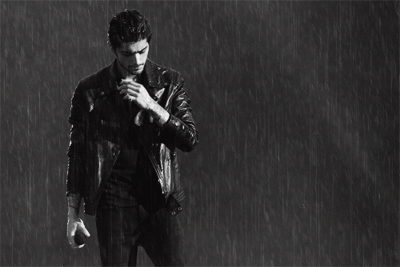
According to Claude Mignot-Ogliastri, well-known critic and biographer, Verlaine did not write that tears were flowing from his heart, but in his heart.
This is significant because the sadness Verlaine is experiencing is said is expressed as having no reason for it. Some believe that this poem was a cathartic response to one of Rimbaud’s letters, describing their theatrical breakup.
This makes me wonder, if that was the cause of this masterpiece, if Verlaine understood that their relationship was unhealthy for them. Even though it was a reoccurring relationship, Rimbaud was in it for the fun and adventure and unaffected in the end while Verlaine was weeping in agony.
To me, the theme of this poem surrounding the idea of “weeping without a cause” is directly related to Rimbaud and Verlaine’s relationship.
Sometimes people become sad or depressed without a specific reason, rather many reasons.
Verlaine, like many poets are able to create great works on a simple subject such as how they are feeling that day. This poem also demonstrates something that we all have experienced before. Unrequited admiration. He doesn’t blatantly express Rimbaud’s loss of interest, but he does express a loss.
It is a loss the reader can translate however they please and I have seen it as the pain one feels when they know they shouldn’t be feeling that way.
This is significant because the sadness Verlaine is experiencing is said is expressed as having no reason for it. Some believe that this poem was a cathartic response to one of Rimbaud’s letters, describing their theatrical breakup.
This makes me wonder, if that was the cause of this masterpiece, if Verlaine understood that their relationship was unhealthy for them. Even though it was a reoccurring relationship, Rimbaud was in it for the fun and adventure and unaffected in the end while Verlaine was weeping in agony.
To me, the theme of this poem surrounding the idea of “weeping without a cause” is directly related to Rimbaud and Verlaine’s relationship.
Sometimes people become sad or depressed without a specific reason, rather many reasons.
Verlaine, like many poets are able to create great works on a simple subject such as how they are feeling that day. This poem also demonstrates something that we all have experienced before. Unrequited admiration. He doesn’t blatantly express Rimbaud’s loss of interest, but he does express a loss.
It is a loss the reader can translate however they please and I have seen it as the pain one feels when they know they shouldn’t be feeling that way.
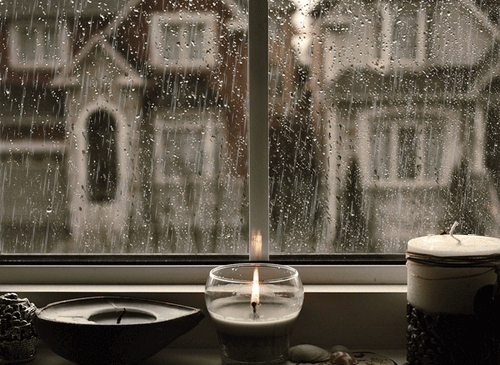
Il Pleure dans mon Cœur
Dit par Jean Piat


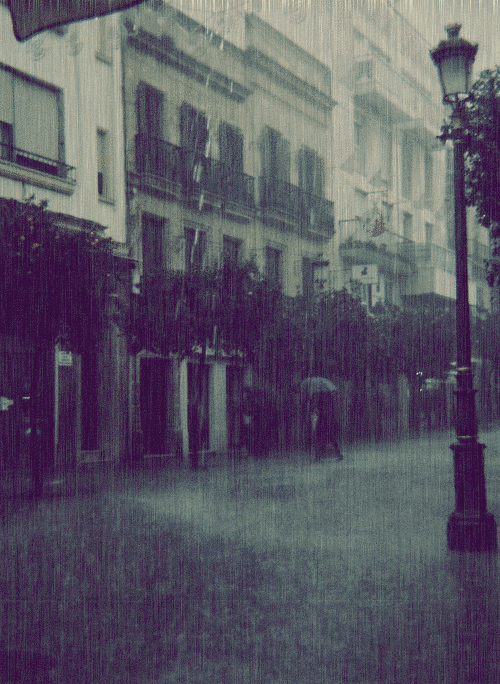
No comments:
Post a Comment